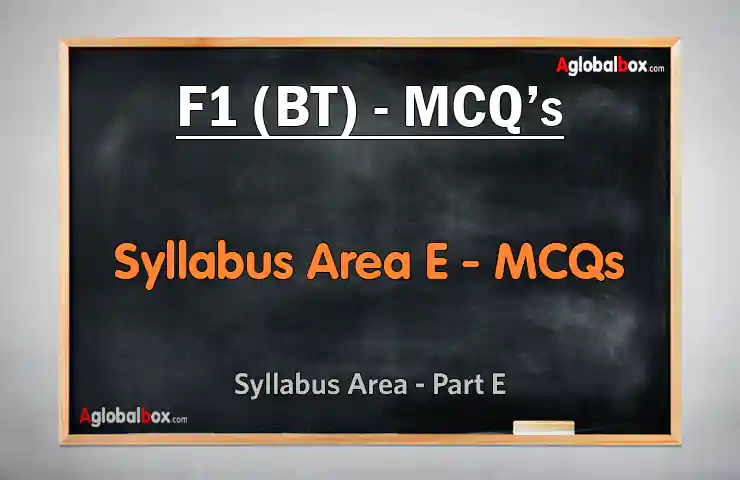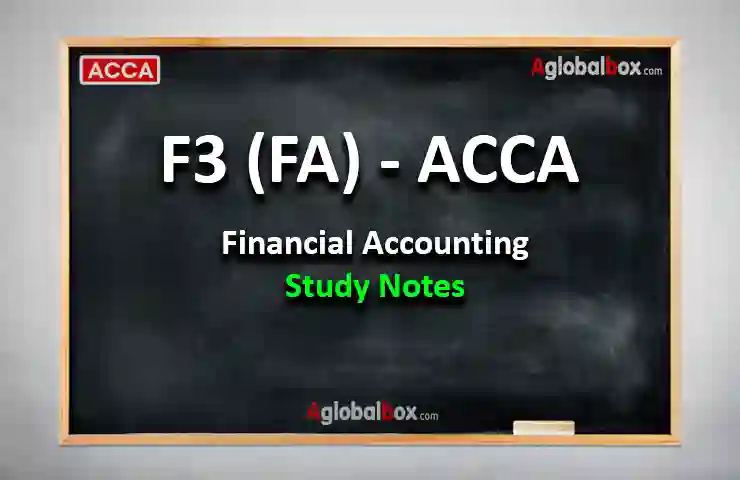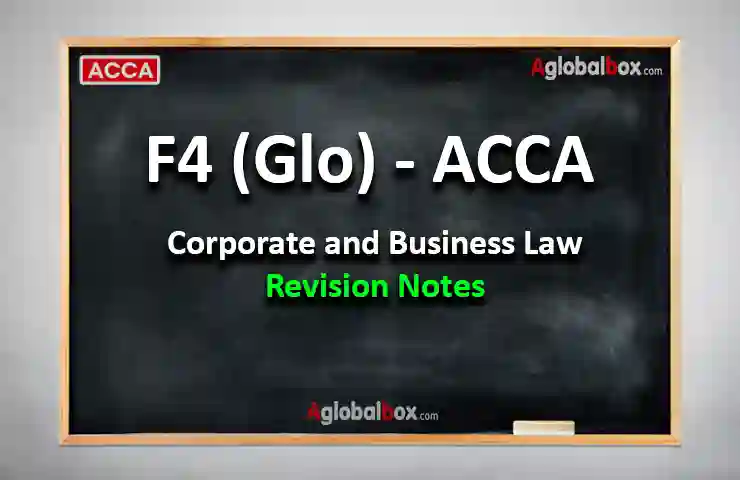This is ACCA F1 (BT/FBT) Business and Technology multiple-choice questions (MCQs).
These multiple-choice questions (MCQs) are designed to help ACCA F1 students to better understand the exam format. We aim to instill in students the habit of practicing online for their CBE exams. By doing so, students can reduce exam stress and prepare more effectively.
Please note:
- Students should not attempt these MCQs until they have finished the entire chapter.
- All questions are compulsory, so please do not skip any.
We hope that these MCQs will be a valuable resource for students preparing for the ACCA F1 (BT/FBT) exam.
INFORMATION ABOUT THESE MCQs Test
Course: ACCA
Fundamental Level: Knowledge, FIA
Subject: Business And Technology
Paper: F1 – BT/FBT
Chapter: Organisational culture and committees
Chapter Number: 07 of the Practice and Exam Kit; and 11 and 12 of the Study Text
Syllabus Area: B – Business organisation structure, functions and governance
Questions Type: MCQs
Exam Section: Section A
Number of the Questions
There are 22 Questions in this Online F1 MCQ Test that cover Chapter 7, Organisational culture and committees of ACCA F1 (BT/FBT) Business and Technology Module.
Time
These MCQs are not time-bound. Take your time and solve them without stress. Pay proper attention and focus. Do not rush or hesitate.
Result
Students will get their F1 CBE MCQs Test results after they finish the entire test. They will also be able to see the correct and incorrect answers, as well as explanations for the incorrect questions.
Types of Questions
MCQs: Choose one from the given options.
Multiple choice: Choose all answers that seem correct or incorrect, as per the requirement of the question. Keep your eye on the wording “(select all those which are correct/ or incorrect)”.
Dropdown: Select from the list provided.
Type numbers: Type your answer in numbers as per the requirement of the question.
- ACCA F1 MCQs
- BT MCQs
- ACCA F1 BT Multiple Choice Questions
- Business and Technology Online Multiple Choice Questions
- ACCA F1 BT Practice Questions Online
- ACCA Business and Technology Online Practice Questions
- F1 Business and Technology MCQs Online
- F1 MCQs
- ACCA MCQs
- ACCA F1 MCQs Chapter Wise
- Online F1 MCQ Test
- F1 BT Chapter 7 MCQs Online
- F1 BT Chapter 7 CBE MCQs
- F1 BT Chapter Organisational culture and committees MCQs Online
- F1 BT Chapter Organisational culture and committees CBE MCQs













